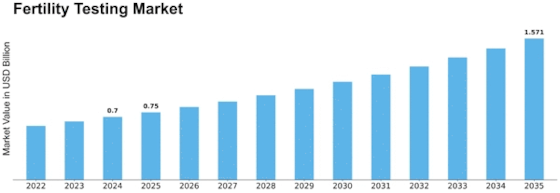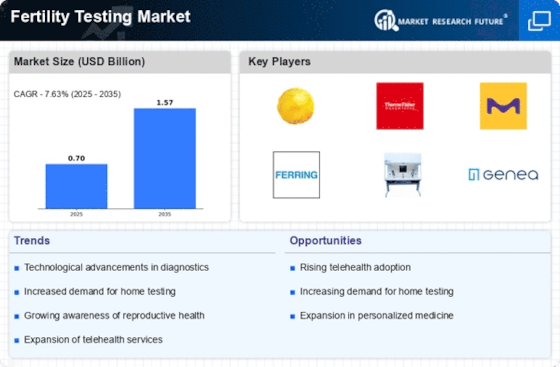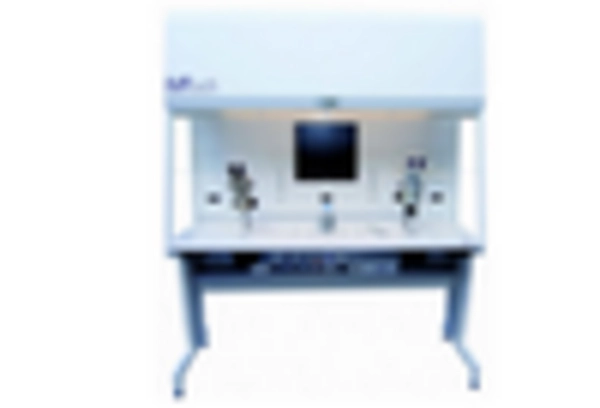Fertility Testing Size
Fertility Testing Market Growth Projections and Opportunities
The Fertility Testing market is encountering a popularity rise because of an expanded mindfulness and training in regards to conceptive wellbeing. Couples are turning out to be more proactive in understanding their fertility, prompting a higher reception of fertility testing techniques. Changing cultural patterns, profession pursuits, and way of life decisions add to a defer in childbearing age. As couples delay beginning a family, the requirement for fertility testing rises. This variable is a critical driver for the extending market, reflecting changing segment trends. The prevalence of infertility problems is rising on a global scale. Infertility problems are exacerbated by elements like as stress, environmental changes, and illnesses. As infertility becomes increasingly common, individuals and couples are seeking fertility testing to identify underlying problems and explore potential solutions. Innovations in flexible applications, telemedicine arrangements, and at-home fertility testing devices contribute to the growth of the industry by making options more accessible and comprehensible. The growing appreciation for craftsmanship, along with a focus on assisted conception procedures such as IVF, fuels the desire for comprehensive reproductive diagnostics. Individuals using fertility medications often undergo extensive testing to increase the likelihood of successful outcomes. Modernizations to the healthcare infrastructure, particularly in developing areas, play a crucial role in the accessibility of fertility testing services. The expansion of specific reproductive facilities and the inclusion of fertility testing in standard medical care protocols contribute to the growth of the industry. The market for fertility testing is impacted by shifting cultural views on family planning and shifting societal norms. People will inevitably search for testing options as more social orders become receptive to considering reproductive issues, which will promote market expansion. Lifestyle variables including as obesity, smoking, and sedentary behavior have been linked to problems with conception. The need for fertility testing is growing as these lifestyle-related variables increase globally, making it necessary to identify and treat potential barriers to regenerative health. Increased financial incentives for creative job activities contribute to the continuous progress in fertility testing. This research-based method improves the precision and reliability of fertility testing, attracting more customers to learn more about these services.




















Leave a Comment